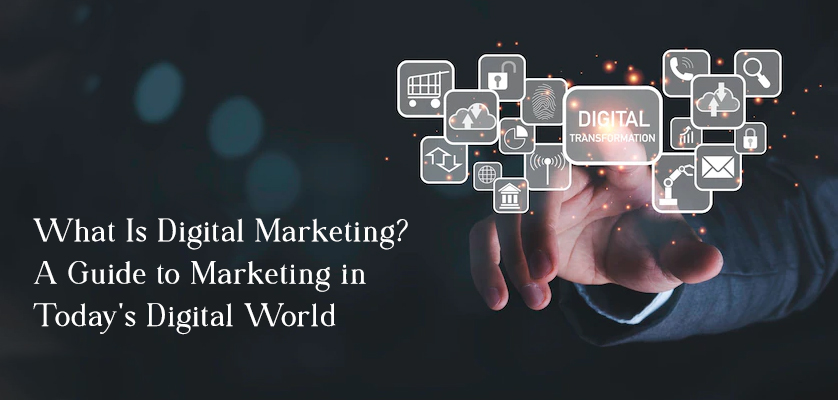Digital marketing is the practice of promoting goods, services, or brands using digital technologies and channels. It’s also known as online marketing, online advertising, and online promotion. It encompasses a wide range of marketing activities, including search engine optimization (SEO), social media marketing, email marketing, content marketing, influencer marketing, and more.
Digital marketing has become an essential element of any company’s marketing plan. It gives you the ability to connect with customers on their terms and at any time when they are ready for your brand message.
The Different Channels Of Digital Marketing
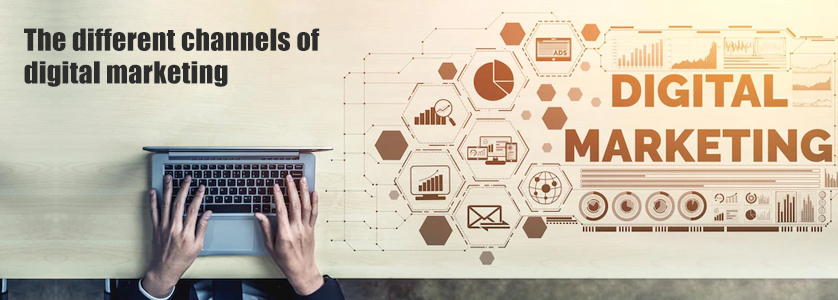
Many different channels can be used as part of an online marketing campaign, including:
-
Search Engine Optimization (SEO): SEO involves optimizing a website’s content and structure to improve its ranking in search engine results pages (SERPs) and increase organic traffic.
-
Pay-Per-Click (PPC) Advertising: PPC involves placing sponsored ads on search engine results in pages or other websites and paying a fee each time the ad is clicked.
-
Social Media Marketing: This involves using social media platforms like Facebook, Twitter, and Instagram to promote products, services, or brands and engage with customers.
-
Email Marketing: This involves sending targeted and personalized emails to a company’s subscribers or customers to promote products, services, or events.
-
Content Marketing: This is the process of producing and disseminating worthwhile, timely, and consistent content to draw in and keep a target audience and ultimately spur profitable customer action.
The Advantages Of Digital Marketing
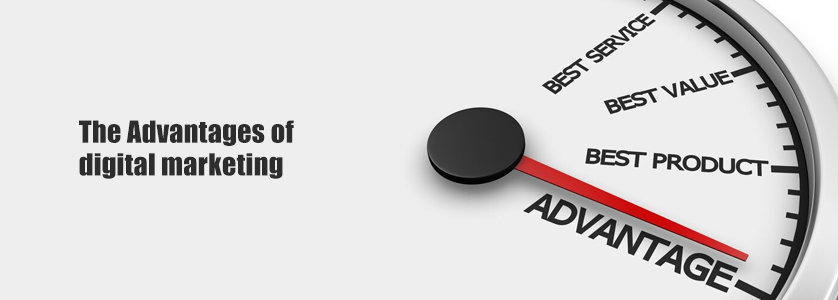
There are many advantages of online marketing for businesses, these are:
-
Cost-Effectiveness: It is often more cost-effective than traditional marketing methods, as it allows businesses to reach a wider audience at a lower cost.
-
Measurable Results: Digital marketing campaigns can be tracked and measured using analytics tools, allowing businesses to see the return on investment (ROI) of their marketing efforts.
-
Targeted Advertising: It allows businesses to target specific audiences through the use of targeted advertising, increasing the chances of reaching and engaging the right people.
-
Increased Engagement: Digital marketing channels like social media and email allow businesses to create a more interactive and personalized customer experience, increasing engagement and loyalty.
-
Increased Reach: It allow businesses to reach a wider audience through the use of the internet and mobile devices.
How To Create A Digital Marketing Strategy
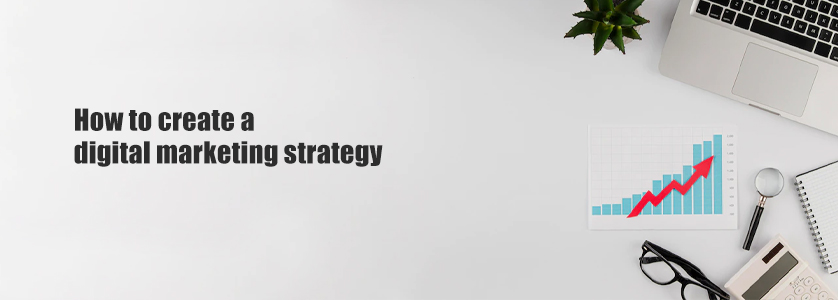
To achieve marketing goals, digital channels are the best way to do it with a properly planned marketing strategy for the particular business. Creating an online marketing strategy involves several steps:
-
Defining your goals, What do you hope to accomplish with your efforts in online marketing?
-
Identify your target market: the people you are attempting to reach with your digital marketing initiatives.
-
Conduct a digital marketing audit by looking at your current efforts and assessing their effectiveness.
-
Research your competitors by taking a look at what your competitors are doing in the digital marketing space.
-
Choose your channels Based on your goals and target audience.
-
Create a content marketing plan and distribute valuable, relevant, and consistent content to your target audience.
-
Use analytics tools to track the performance of your digital marketing efforts and measure your progress toward your goals.
-
Test different tactics and techniques to see what works best, and continually optimize your efforts based on the results you see.
By following these steps, you can create a comprehensive digital marketing strategy that will help you reach your marketing goals and effectively engage with your target audience.
Tracking The Analytics And Efficiency of Your Digital Marketing Efforts
![]()
Checking the effectiveness of your digital marketing strategy is essential for understanding what’s working and what isn’t, and for making data-driven decisions to optimize your strategy. Here are a few key ways to measure and analyze the effectiveness of your online marketing efforts:
-
Use Analytics Tools: There are many analytics tools available that can help you track the performance of your digital marketing efforts.
-
Track Conversions: Conversion rate is a key metric to track, as it tells you how many visitors to your website or landing page take a desired action.
-
Monitor Social Media Metrics: Social media metrics like likes, comments, and shares can give you an idea of how well your content is resonating with your followers.
-
Use A/B Testing: A/B testing involves comparing two versions of a digital marketing element (e.g., a landing page, email subject line, ad copy) to see which performs better.
By regularly analyzing the outcomes getting from your digital marketing strategies. you can make data-driven decisions to optimize your strategy and improve your results.
Integrating Digital Marketing With Traditional Marketing
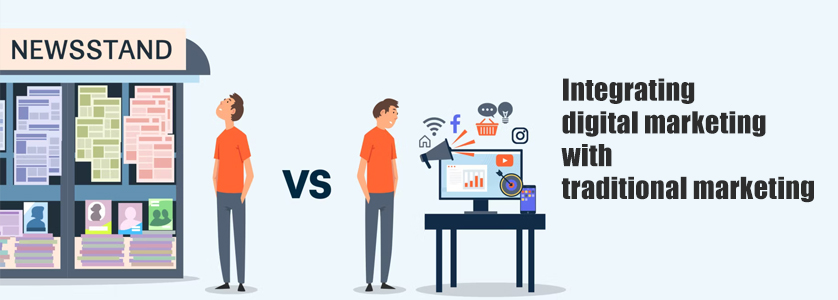
Integrating online marketing with traditional marketing involves combining the use of digital channels and technologies with more traditional marketing methods. This can help businesses reach a wider audience and create a more cohesive and effective marketing strategy.
Here are a few ways to integrate online marketing with traditional marketing:
-
Use digital channels to amplify traditional marketing efforts
-
Incorporate traditional marketing elements into your digital campaigns
-
Use traditional marketing to promote digital campaigns
-
Use data from traditional marketing campaigns to inform your digital marketing efforts
By integrating digital marketing with traditional marketing, businesses can create a more comprehensive and effective marketing strategy that reaches a wider audience and drives better results.
Conclusion
In conclusion, digital marketing is essential to any business’s marketing strategy in today’s digital world. By using digital channels and technologies, businesses can reach and engage with consumers where they spend most of their time: online. Digital marketing allows businesses to track and measure the effectiveness of their campaigns, target specific audiences, and create a more interactive and personalized customer experience. By regularly measuring and analyzing the results of their digital marketing efforts, businesses can make data-driven decisions to optimize their strategy and improve their results.

